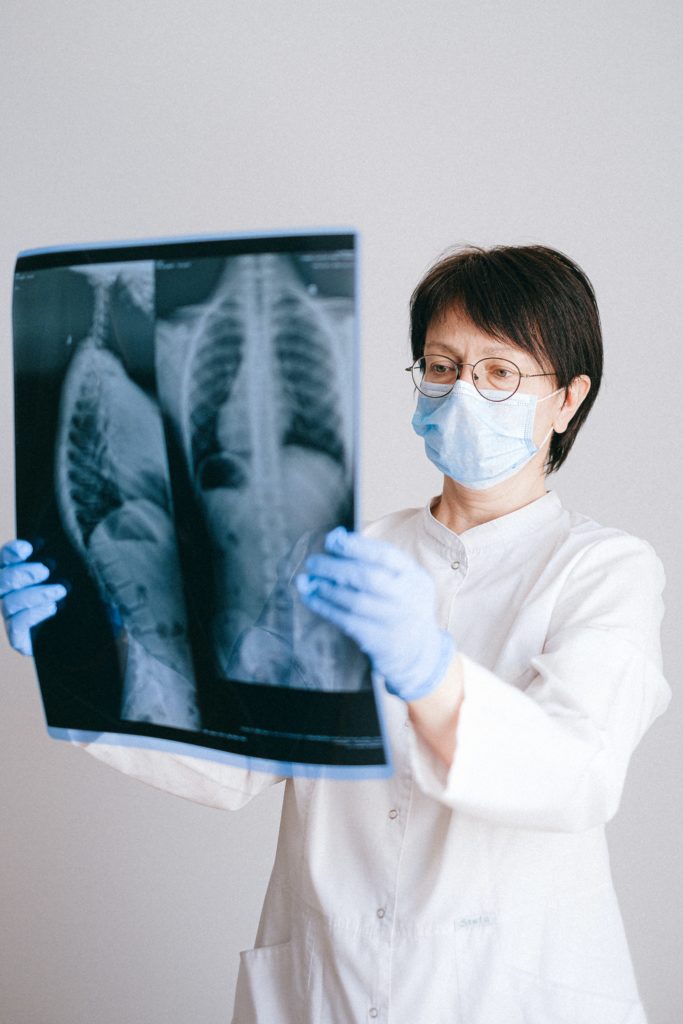People who were hospitalised with COVID-19 and continued to experience symptoms five months later show limited further recovery one year after hospital discharge, according to the latest results of a major national study looking at the long-term health impacts of COVID-19 on hospitalised patients

The latest findings of the PHOSP-COVID study, which involves several researchers from the University of Oxford, have been published on the medRxiv pre-print website.
The study confirmed earlier research that people who were less likely to make a full recovery from COVID-19 were female, obese, and required invasive mechanical ventilation (IMV) to support their breathing during their hospital stay.
The PHOSP-COVID study, led by the National Institute for Health Research (NIHR) Leicester Biomedical Research Centre (BRC), has been given urgent public health research status by the Department of Health and Social Care. Around 10,000 patients are expected to take part in the study, making it one of the largest comprehensive studies in the world to understand and improve the health of survivors after hospitalisation from COVID-19.
Oxford investigators have been prominent in this study, providing expertise in multi-organ imaging, mental health and lung disease. The study involves an important collaboration between the city’s two NHS Trusts (Oxford University Hospitals NHS Foundation Trust and Oxford Health NHS Foundation Trust), the two NIHR Biomedical Research Centres (Oxford BRC and Oxford Health BRC), as well as the University of Oxford.
Professor Ling-Pei Ho (Oxford BRC Respiratory Theme investigator), Professor John Geddes (Director of the Oxford Health BRC) and Professor Stefan Neubauer (Oxford BRC Theme Lead for Imaging) are part of PHOSP-COVID’s national consortium group.
Researchers from 53 institutions and 83 hospitals across the UK assessed 2,230 adults who had been hospitalised with COVID-19. All participants have completed a five-month assessment and so far, 807 people have also completed a 12-month assessment.
Recovery was measured using patient-reported data, physical performance and organ function tests. Participant blood samples at the five-month visit were analysed for around 300 substances linked to inflammation and immunity.
The researchers found that one year after hospital discharge, fewer than three in 10 patients on the study reported they felt fully recovered, largely unchanged from 2.5 in 10 at five months.
The most common ongoing symptoms were fatigue, muscle pain, physically slowing down, poor sleep and breathlessness.
Participants felt their health-related quality of life remained substantially worse one year after hospital discharge, compared to pre-COVID. This suggests the physical and mental health impairments reported in the study are unlikely to be pre-existing conditions.
Prof John Geddes said: “The PHOSP-COVID study is a major achievement, pooling data and expertise from across the country to better understand the lasting physical and mental impacts of COVID-19 on hospitalised patients. These findings show that many people who developed long COVID after being hospitalised have still not recovered a year after being discharged.
“More than half a million people have been admitted to hospital with COVID-19 in the UK, so as country, we are looking at a significant proportion of the population at risk of persistent ill health and reduced quality of life.”
Prof Ling-Pei Ho said: “PHOSP-COVID research teams have also identified some differences in the blood samples of patients who are still experiencing the long-term physical and cognitive effects of their COVID-19 hospital admission. These might indicate possible underlying mechanisms, and help us identify existing medicines that target these mechanisms to help these patients.
“Oxford has been a key contributor to this research, and it has been a massive team effort from the Long COVID clinic, BRC Integrative Respiratory Physiology Clinic, Oxford Respiratory Trials Unit, and research laboratories in Human Immunology Unit and Respiratory. Every patient who gave their time has contributed to this huge landmark study, which will continue to inform how we treat and support our post-COVID patients going forward.”
As well as the NIHR, the PHOSP-COVID study is funded by the MRC-UK Research and Innovation (UKRI).